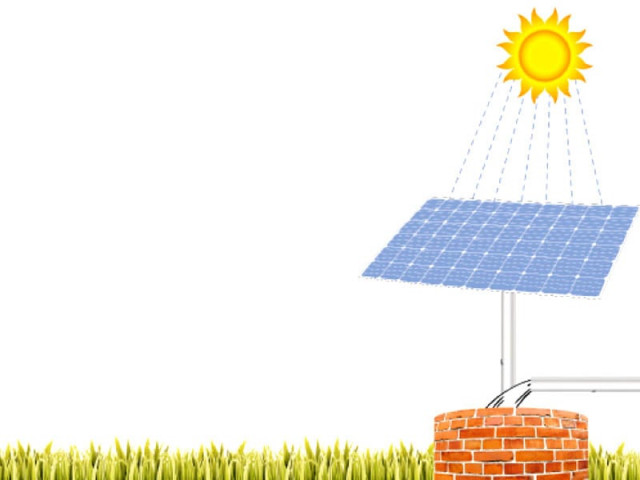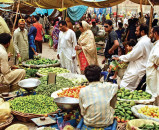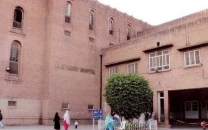Poverty alleviation: Villagers thrive by using alternative energy
Solar tube-wells irrigate land, machines not requiring electricity distributed.

Solar tube-wells are just one of the alternative energy solutions that the PPAF has introduced villagers to.
Farmers in Ahmadwala, a village some 40 kilometres to the west of Lahore, are no longer worried about power outages affecting their livelihoods.
The farmers’ fields are watered even if electricity remains suspended for days, thanks to the alternative energy solutions. They say they have become an inspiration for residents of nearby villages because of the solar tube-well installed recently.
The tube-well – which cost Rs1.65 million – has been installed by the Rural Community Development Society (RCDS), a non-government organisation, with financial support from the Pakistan Poverty Alleviation Fund (PPAF). Around Rs320,000 of the total amount was contributed by 10 farming families. Each of the families uses the tube-well to irrigate their land according to a mutually-agreed schedule. The tube-well is operational for around 12 hours a day and irrigates some 40 acres of land.

“Our monthly [electricity] bill used to be around Rs85,000. Now we don’t have to pay anything,” says Maratib Ali, the president of the group of 10 households who benefit from the tube-well.
“Many farmers want to install solar tube-wells but are waiting for some help since installing them on their own is vey expensive,” he tells The Express Tribune.
Ali is so happy with the shared-resource formula that he thinks similar ventures in cities can help in tackling long hours of loadshedding. People living in the same street can buy solar panels to power their homes, he suggests.
Solar tube-wells are just one of the alternative energy solutions that the PPAF has introduced villagers to.
Manual machines
Under another project, women running businesses out of their homes have been provided with machines that do not require electricity to function. Maqsooda Liaquat, who now operates a small cottage industry in a village in Nankaba Sahib district got a loan from the RCDS and bought a manual knitting machine three years ago when she had to repay the debt she incurred when her husband fell ill.
“Today I run my own small business. Six women work for me,” she says proudly. “The best thing is that we don’t have to stop when there is no electricity.”
Tunnel farming
Nankana Sahib is famous for its guavas and wheat. But in Mirzapur village, some farmers are growing out-of-season vegetables by using tunnel farming.
Malik Zubair is the group leader of one such group. “The income per acre by growing out-of-seasons vegetables is five times what we earned from guavas or wheat,” he says.
Zubair, however, says that it is not easy. “It is very tough and you cannot leave your crop unattended for even one day. The crop gets ready in 70 days and costs five times the wheat in inputs.” But to him and his group, the effort and the investment are worth it.
Published in The Express Tribune, July 3rd, 2013.



















COMMENTS
Comments are moderated and generally will be posted if they are on-topic and not abusive.
For more information, please see our Comments FAQ